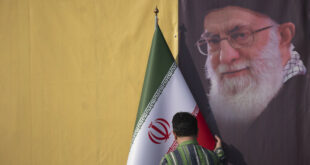Pope Benedict XVI and former Iranian president Seyed Mohammad Khatami met at the Vatican Friday as part of ongoing Church efforts to improve relations with Muslims. In a statement, the Vatican said the meeting had allowed the two leaders to discuss “the importance of serene dialogue between cultures”, “promote cooperation” and “overcome the serious tensions that mark our time.”
The two also discussed developments in the Middle East, where Pope Benedict noted the increasing tensions and political and security problems in Iraq, Afghanistan, Lebanon and occupied Palestine as well as Iran’s outstanding role in restoring calm in the region.
“Europe is well informed of Iran’s regional role,” the Pope said, adding that Iran can play a crucially significant role in soothing regional crises through relying on its peace-seeking traditions and approach.
The world Catholic Church leader further pointed to religious freedom in Iran, and underlined that divine religions in Iran are leading a peaceful life and show respect for each other.
Khatami is regarded as one of the most senior Muslim figures to have met the pontiff since his controversial remarks on Islam last year.
In a speech in Germany last September, Benedict infuriated Muslims across the world by appearing to equate their religion with violence.
Benedict has since sought to make amends and pleased many Muslims last December with a highly symbolic visit to Istanbul’s Blue Mosque.
A meeting between the two last autumn was canceled after the pope gave a speech in Germany that offended many Muslims. On Friday, at a conference in Rome on intercultural dialogue, Khatami, a reformer in office from 1997 to 2005, was asked whether the tensions raised after that speech had healed.
“Unfortunately, the wounds of this world are too deep and can’t be closed easily, and maybe only one meeting is not enough,” he said, according to ANSA, an Italian news service. “But there is a common effort to try to close them.”
After the half-hour meeting, the Vatican issued a statement saying the men had “paused to reflect on the importance of a serene dialogue among cultures, intending to overcome the grave tensions that mark our times.”
In his speech in Regensburg, Benedict had quoted a medieval Byzantine emperor referring to Islam as “evil and inhuman.” The pope said later he had not intended to offend Islam and apologized after parts of the Muslim world reacted angrily to his remarks.
 Eurasia Press & News
Eurasia Press & News


